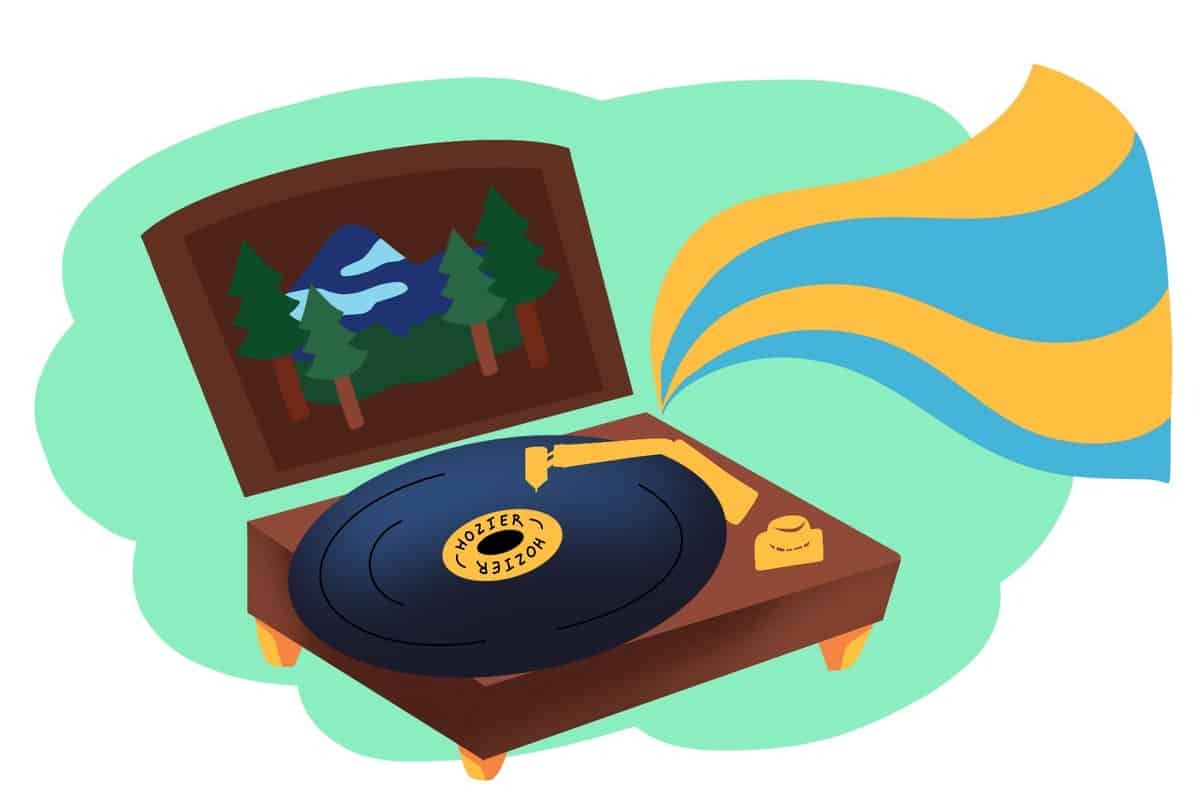On Aug. 18, Hozier gave listeners a look into love and darkness with the release of his third album, “Unreal Unearth.” The singer and songwriter dives into themes like heartbreak, tackling the good and bad of the experience, but also touches on the joys in life too.
“I knew there was a lot of light and shade on the record,” Hozier said in a interview with Zane Lowe. “Any experience of love, or any experience of joy or lightness … you can’t experience without an equal helping of grief.”
On “The Zane Lowe Show,” an Apple podcast featuring discussions with artists, Lowe and Hozier talk through the artist’s lyrical, cultural, personal and literary inspirations on the album. Works such as “The Third Policeman” by Flann O’Brien and Dante’s “Inferno,” as well as Hozier’s experience of isolation during the COVID-19 pandemic, all contributed to this concept album.
“Unreal Unearth” has 16 songs, including “Francesca” and “Eat Your Young,” some of which he had been working on since before the pandemic.
In an interview with CBS, the artist mentions the love and loss he experienced during the pandemic, and how it can still be difficult to talk about today.
“The world sort of changed and it felt like a lot of the work was frivolous in the face of everything,” Hozier said.
Opening the album are two complimentary tracks, “De Selby (Part 1)” and “De Selby (Part 2),” both featuring inspiration from “The Third Policeman.” On his own YouTube, Hozier includes “Behind the Song” videos, detailing his thoughts and the process of developing select songs on the album.
Regarding the opening tracks, Hozier highlights De Selby, a character in O’Brien’s book experiencing a wonderful but terrifying adventure. Hozier explores the concept of darkness as freeing in some ways with lyrics like, “At last, when all of the world is asleep / You take in the blackness of air / The likes of a darkness so deep / That God at the start couldn’t bear.”
At the end of “De Selby (Part 1),” Hozier sings in Gaelic, the native language of Ireland. He discusses the journey of finding his artistic voice and the expectation of showing up as an Irish artist, and the pressure of place, nation and faith with one’s identity.
In “De Selby (Part 2),” Hozier expands on the lyrical themes of darkness and battling the day-to-day ongoings of the world, but with a slightly different production. The artist describes the track as “more of a funky disco track” that he tried to keep intimate but also “had a little fun with the number.”
In contrast to “De Selby” parts 1 and 2, Hozier chose to end the album with the track “First Light,” which draws inspiration from Dante’s “Inferno.” The song describes the feeling of stepping into the sun and seeing the sky for the first time after a dark period of suffering.
The track also involves acceptance and closure after a long journey. Over the course of the album, the message changes from struggling with darkness to learning how to move forward and balance both the light and dark in life.
“This album represents a reflection on the journey through the last few years, and all that was reckoned with in that time,” he said in an Instagram post. “I’m proud of the work and look forward to taking all that I’ve gained in its making into projects to come.”
The album has received ample praise, earning Hozier’s first No. 1 in the U.K. and another in Ireland. “It’s a special feeling to receive this kind of support in your home country. A massive thank you to everyone in Ireland for all the love and support shown to #UnrealUnearth,” the artist said in another Instagram post.
Hozier is on a tour that started earlier this summer and will continue until December, ending in Ireland.









